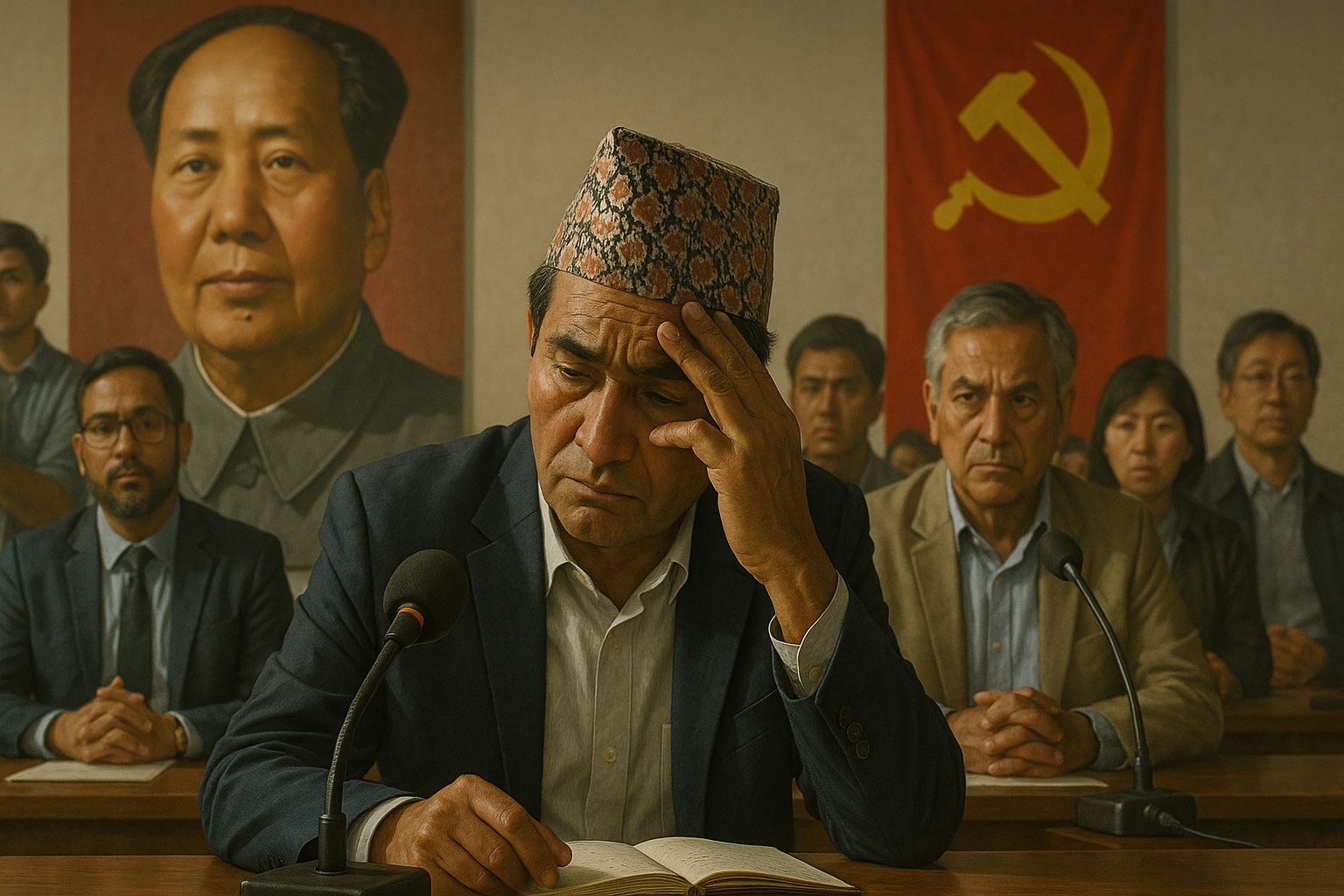China’s “Five-Finger Policy” Rekindles Debate Over Nepal’s Sovereignty and Geopolitical Autonomy

China’s former leader Mao Zedong’s “Five-Finger Policy” has once again become the focal point of Nepal’s geopolitical debate. According to analysts, Mao’s strategic vision regarded Tibet as the palm of the hand, while Nepal, Bhutan, Sikkim, Ladakh, and Arunachal Pradesh were depicted as the five fingers.
Based on this concept, experts believe that China has pursued a long-term strategy to keep these geographical regions within its “natural sphere of influence.” Analysts argue that Beijing’s policy is not limited to conventional diplomacy alone but also incorporates security, cultural influence, water resource control, and expansion of economic infrastructure.
A senior diplomatic expert, speaking to Nepal Aaja on condition of anonymity, said:
“China’s Five-Finger Policy may be decades old, but its influence remains significant even today. For China, Nepal is not just a neighbor — it is a strategic part of Tibet’s security buffer zone. This is why China seeks to maintain a deep presence in Nepal’s political stability, infrastructure, and energy sectors.”
Former diplomats argue that China has been adopting a “soft-inclusion strategy” to gradually deepen Nepal’s economic and cultural dependency. From infrastructure projects to the Belt and Road Initiative (BRI), experts note that Beijing increasingly views Nepal within the context of its regional security and influence framework.
Debate over the policy has intensified within Nepal’s social, political, and diplomatic circles. Some see Mao’s strategy as being reactivated, expressing concerns over Nepal’s sovereignty and independence, while others urge Kathmandu to adopt careful, balanced diplomacy between China and India to safeguard its strategic autonomy.
Although the Nepali government and the Ministry of Foreign Affairs have not issued any formal statements, insiders suggest that internal discussions are ongoing. With Nepal’s growing economic, cultural, and diplomatic dependence on China, Mao’s Five-Finger Policy has raised new questions about Nepal’s strategic independence, identity, and long-term geopolitical positioning.
Sharp Power
![From Kathmandu to the World: How Excel Students Are Winning Big [Admission Open]](https://nepalaaja.com/img/70194/medium/excel-college-info-eng-nep-2342.jpg)
